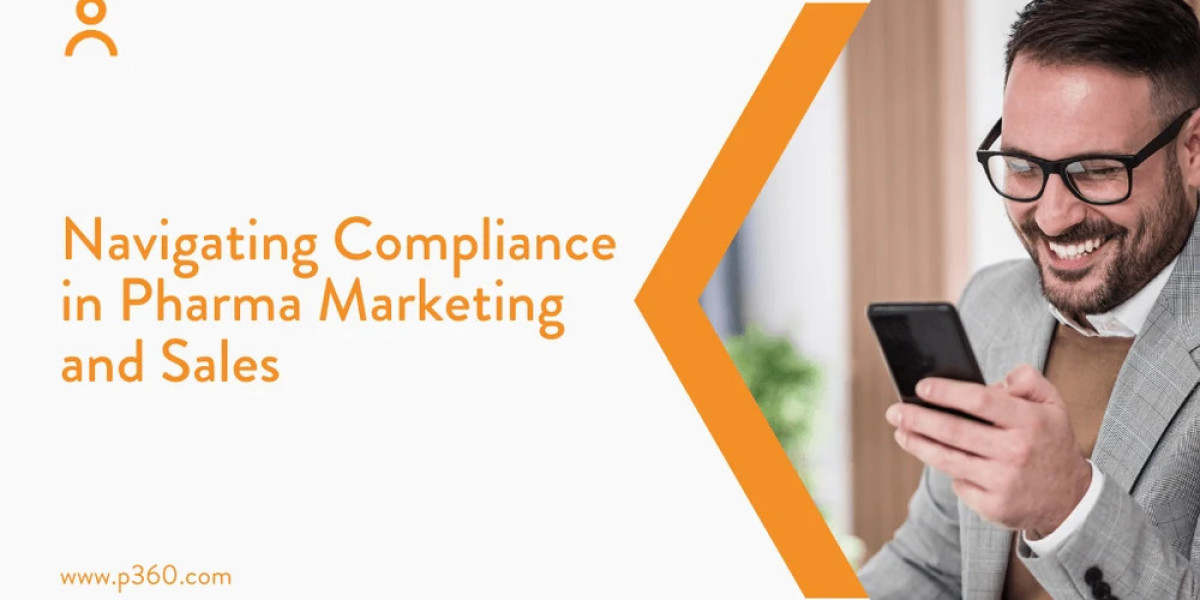In the dynamic realm of pharmaceuticals, where innovation intersects with patient care, adherence to regulatory standards is paramount. The pharmaceutical industry operates within a framework of legal and ethical guidelines to ensure the safety and well-being of patients while fostering innovation and growth. In this blog, we delve into the essential strategies for achieving excellence in marketing and sales while navigating the complex landscape of compliance.
Understanding Pharma Compliance
Compliance Fundamentals:
Pharma Compliance in marketing and sales isn't merely about adhering to rules; it's about prioritizing patient welfare above all else. When pharmaceutical companies comply with regulatory guidelines and ethical standards, they safeguard patient safety and minimize liabilities. Non-compliance can lead to severe consequences, including regulatory fines, lawsuits, and reputational damage.
Challenges and Considerations:
One of the challenges of pharma compliance is managing how promotional needs balance with risk disclosure in a context of global marketing that is affected by many different regulations. Being well-informed on such regulatory changes is vital when it comes to effective management of complex compliance issues.
Importance of Compliance Standards
Prioritizing Patient Safety:
Compliance standards prioritize patient safety by ensuring accurate information dissemination and preventing off-label promotion. By adhering to approved indications and providing truthful information, pharmaceutical companies protect patients from potential harm.
Regulatory Adherence:
Adherence to regulatory standards is essential to avoid penalties and legal repercussions. Regulatory bodies like the FDA and EMA enforce regulations to ensure pharmaceutical companies meet legal requirements and maintain industry standards.
Upholding Ethical Standards:
The real point of compliance is to enrich trust among stakeholders and lay safe from being deceived. In order to maintain credibility and integrity, the pharmaceutical company should promote transparency in financial interactions as well as ethical behavior.
Risks of Non-Compliance
Legal and Financial Consequences:
The risks of non-compliance in pharma marketing are significant and multifaceted. From hefty fines and legal action to reputational damage and ethical implications, the consequences can be far-reaching. Non-compliance undermines trust, jeopardizes brand reputation, and poses ethical dilemmas for companies.
Mitigating Risks with a Comprehensive Framework
Essential Components of Compliance:
In order to manage threats, companies in pharmacy have to commit themselves to comprehensive compliance framework, which comprises things like adherence to correct usage of medications, truth in information as well as regulatory approval for advertisements.
Establishing an Ethical Culture:
Further fortifying compliance endeavors is cherished through collaboration with regulatory bodies and creation of an ethical culture in organizations. In their resolve to be responsible in their marketing practices, these companies prioritize ethical behavior and transparency.
Utilizing Compliance Solutions:
As technology evolves, compliance solutions like P360's ZING Engagement Suite facilitate compliant communication with healthcare professionals, ensuring seamless interaction while adhering to regulations.
Conclusion
In conclusion, pharma compliance is not just a legal requirement; it's a commitment to public health and business integrity. By prioritizing compliance, pharmaceutical companies uphold patient safety, maintain regulatory adherence, and safeguard their long-term success. Through proactive measures, continuous adaptation, and ethical practices, the industry can navigate the complex terrain of compliance while advancing patient care and innovation.
In essence, compliance is the cornerstone of responsible pharmaceutical marketing, guiding companies towards ethical conduct and sustainable growth. By embracing compliance as a core value, the pharmaceutical industry can uphold its commitment to improving patient outcomes and driving positive societal impact.
To learn more about all P360’s innovative products, visit P360.com








